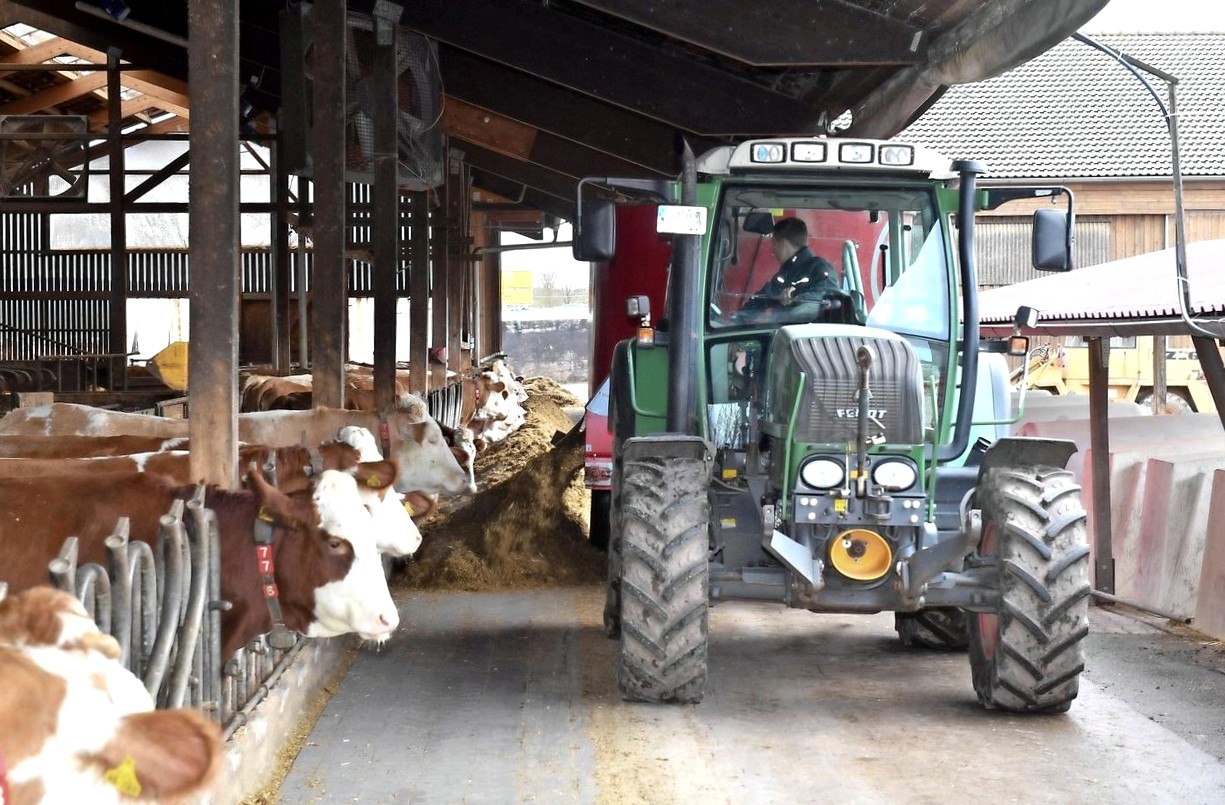In hundshof, the cow is doing well

Anyone who talks to georg and barbara bessler from hundshof in the municipality of frensdorf about the work on their dairy farm soon realizes how much heart and soul they put into the farm and the well-being of their animals. When lena, now 50, and his wife took over his parents' farm in 1993, the couple had to decide what kind of farming they wanted to focus on. "We decided right at the beginning to work with the cows. There lay our strong. Besides, the necessary flat and the corresponding land were available", georg bessler looks back on the beginnings 25 years ago. As the number of cows increased rapidly from 22 in the beginning, the family farm decided to build a new dairy barn in 1996. This provided space for a total of 80 cows and, with its open barn front and the resulting freedom of movement, ensured that the animals felt completely at ease. But the stable should not be the only investment in the farm.
"No mass animal husbandry"
Werner nutzel, district executive officer of the bavarian farmers' association, visited the family farm as part of the association's stall discussion. He was pleased with the way the cows are kept and stated: "the animals have never been kept as well as they are today." In this way, he was able to vehemently counter the criticism of many members of the public, who often compare the situation on the farm with factory farming. "There is no such thing in the bamberg district or in bavaria in general. But it must also be said that the romantic, small farm of the past with its 20 cows could no longer support a family nowadays. Similar to crafts and industry, a farm needs a minimum size in order to exist economically."
Always investing
Over the past 20 years, georg and barbara bessler have also continued to modernize their family farm in order to remain competitive in an evolving marketplace. The increase to 100 cows was accompanied by the investment in a new young cattle barn and the expansion of the existing barn. "Today we keep 135 cows and up to 35 calves. When we took over the farm, we never thought we would have such a large number of animals", the farmer looks back on the development of the farm; however, her husband emphasizes: "if we couldn't handle animals and guarantee their comfort, then we wouldn't have had this kind of stock size." This comfort was further improved three years ago with the abolition of tethering. In october 2015, the besslers also did themselves a favor by purchasing an automatic milking system. The milking robot takes the hardest physical work off your hands and also saves a lot of time; but it is also well received by the cows. "In the beginning, they had to get used to it first. In the meantime, there is dense crowding in the queue." The purchase has also paid off in terms of milk production: with a barn output of 8,500 liters of milk per cow per year, hundshof is a good 600 liters above the average in bavaria.
Animal welfare crucial
The bessler family became more and more aware of the importance of animal welfare in the successful running of a dairy farm, so that the farm was gradually oriented towards the well-being of the animals. "It already starts with the calves. We give them plenty of milk and keep them in the fresh air by buying 'calf igloos'", barbara bessler emphasizes. The care for the adult animal has a particular impact on the quality of the milk. "Only when our animals are well can they produce the best milk. We know our cows and their sensitivities. And of course we are very attached to them and don't just see them as farm animals." According to werner nutzel, in order to ensure animal welfare, farms must comply with "increasingly stringent legal requirements" fulfill. These also affect the areas of plant protection, soil protection and manure management.
According to information from the farmers' association, the manure ordinance in particular has recently been tightened again. "We have a development in bavaria according to which the number of dairy farms is halved every ten years." Georg bessler is also concerned about this trend. "Who would blame the young people if they did not want to pursue the profession, even in the face of the low price of milk?. For farming you have to be born a bit simple."
But the besslers don't have to worry about the future of their family business: their 20-year-old son johannes has declared himself ready to succeed them and is already actively helping out on the farm.